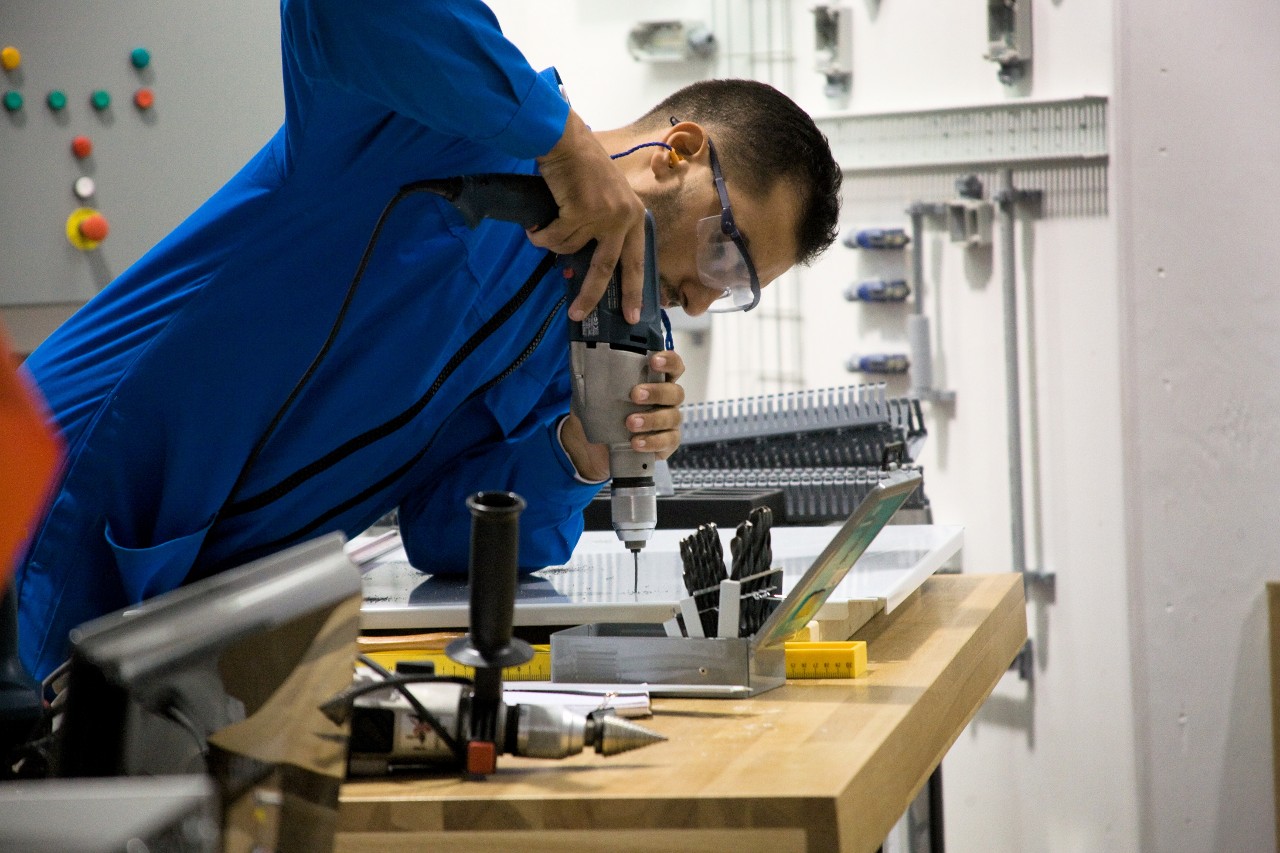Industrial Control 19
The skill of Industrial Control covers elements from electrical installation and automation installation. However, the requirements are now leaning more and more towards automation installation. There are a wide range of technical skills required from the practitioner, including installation of conduits, cables, instruments, devices and control centres. The practitioner will also need to design circuits and program Programmable Logic Controllers, parameterize bus systems and configure Human Machine Interfaces.
A key skill of the practitioner is troubleshooting, identifying problems during installation or remedying problems with an established plant.
The practitioner will work in a large range of industrial settings; he or she may have specialist knowledge about one particular industry or may work more generally. Also, the practitioner may be employed within one plant, installing and maintaining production equipment, or may work for a sub-contractor who will span a number of industrial settings.
The practitioner needs an awareness of the implications, both financially and for the business’s reputation, of delays in production as a result of reliability issues on the production line. They will therefore need to work in a logical manner and be sure to meet time constraints. They will also need to provide expert advice and guidance on both technical production issues and innovative and cost effective solutions to production problems and requirements.
The working environment is likely to be one that is potentially very dangerous and hazardous. The practitioner therefore needs proactively to promote best practice in health and safe working and rigorously adhere to health and safety legislation.
Required skills
Numeracy, critical thinking, mathematics, read and interpret technical drawings and problem-solving skills
Career info
Industrial Control covers electrical installation; however, is now leaning more and more towards automation installation. There are a wide range of required technical skills, including installation of conduits, cables, instruments, devices and control centres. The practitioner will also need to design circuits and program programmable logic controllers, parameterize bus systems and configure human machine interfaces.
A key skill of the practitioner is troubleshooting both during installation and with an existing installation.
Keenly aware of business reputation and financial consequences of delays in production as a result of reliability issues on the production line, they will need to work in a logical manner; meet time constraints; and provide expert advice and guidance as well as innovative and cost effective solutions to production requirements, operations and problems. Because the work environment may hold potential hazards, the practitioner needs to proactively promote best practice in health and safety working and to rigorously adhere to health and safety rules and regulations.
At the Competition
The Competitor will be judged on:
- Health and safety
- Circuit design and/or modification
- Making of the Automation Control Panel/Centre
- Field Installations
- Programming of the Automation equipments of the Test Project
- Fault finding

